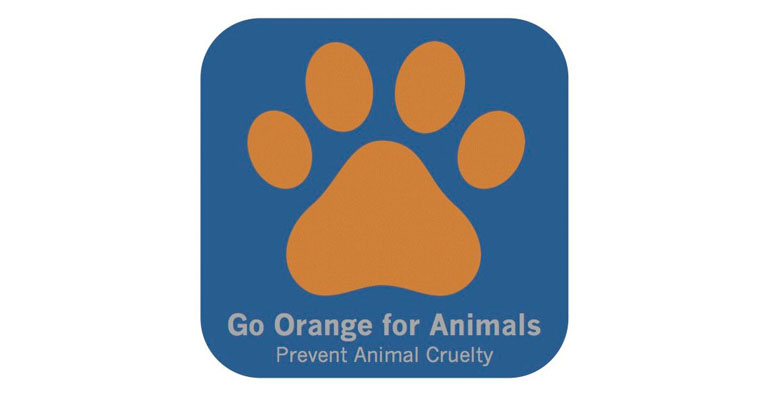April is Prevention of Cruelty to Animals month and there are many ways to show one’s love for animals and join the fight against animal cruelty.
Each year the ASPCA urges supporters across the country to “Go Orange for Animals” to raise awareness. People can also show virtual support by using the hashtag #FightCruelty, support your local shelter or even become an animal activist.
Statistics showed animal abuse is often associated with domestic violence. American Humane reported 71 percent of pet-owning women entering women’s shelters reported that their abuser injured, maimed, killed or threatened family pets for revenge or to psychologically control victims, and 32 percent reported their children hurt or killed animals.
Harming animals is also used as a way of harming people.
“Abusers kill, harm, or threaten children’s pets to coerce them into sexual abuse or to force them to remain silent about abuse. Disturbed children kill or harm animals to emulate their parents’ conduct, to prevent the abuser from killing the pet or to take out their aggressions on another victim,” reads a statement from American Humane.
Donating to local shelters could aid the war against animal cruelty. There are always fun ways to donate. The Humane Society of South Mississippi and Southern Pines Animal Shelter are always holding events. Staying involved with animal organizations in the community can make a huge impact on the organization and its animals.
Physically abusing animals is not the only form of animal cruelty. Individuals should be aware of other signs of abuse. Some animals are completely left alone without food or water and are untreated by a vet, often leaving them covered in fleas and ticks.
One of the best ways of helping with the prevention of animal cruelty is reporting abuse. Report animals who are kept outside without shelter in extreme weather conditions. These conditions can lead to loss of limbs or even death. Also pay close attention to animals who cower in fear or act aggressively when approached by their owners. Other symptoms to report are thinning animals, patches of missing fur and possibly even limping.
Be sure to provide as much information as possible. Writing down what is seen, such as who was involved, what happened and when and where it took place will help the investigation. Contacting the local law enforcement and letting them know that animal cruelty should be a priority will ensure the proper investigations of these cases.
“Without phone calls from concerned citizens who report cruelty in their neighborhoods, we wouldn’t know about most instances of animal abuse. It all comes from the public, it all starts with you — that’s why it’s so important to keep your eyes and ears open,” said a representative from ASPCA.
































